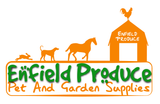Eco Booch is a biostimulant made from organic protein, which has been broken down into peptides and amino acids. These components belong to a group of biostimulants, known as protein hydrolysates, which have received much attention in Europe over the last decade. Based on European research, Eco Booch was further developed in Australia as a new generation hydrolysate.
Some of the advantages of Eco Booch include increased growth yield, improved crop quality, and increased resistance to abiotic stresses such as drought, high and low temperatures, and soil salinity.
Protein hydrolysates contain a number of amino acids and peptides. Amino acids and small peptides can be absorbed by both the roots and leaves and move into the plant. The soil microbes can also use them. In fact, when applied to the soil, most amino acids are usually used by soil microbes, and the remainder is taken up by plant roots.
The amount of space occupied by the roots varies considerably across plant species/varieties and soil conditions. When amino acids are taken up by soil microbes, the microbes multiply, increasing the availability of previously locked-up nutrients to the plant.
Eco Booch contains significant amounts of nitrogen and potassium and is particularly suited to organic crop production. Amino acids and peptides are used directly for protein and enzyme synthesis.
Eco Booch can be used on a wide range of plants, including vegetables, agricultural and horticultural crops.
